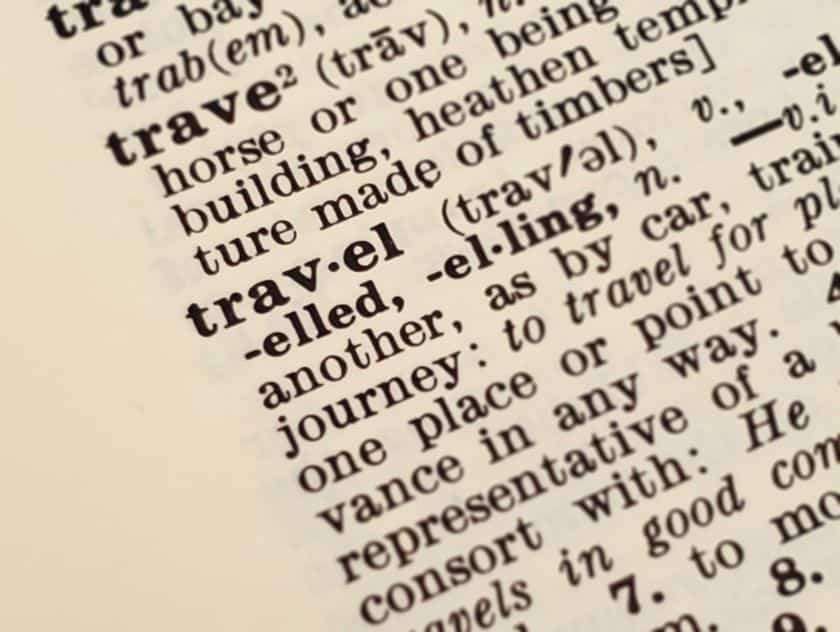When the travel industry talks about sales and distribution of travel’s third-largest sector, Tours & Activities, the only thing most people talk about is online travel agencies (OTAs). While they are an important and growing part of the picture, that channel is still a small piece of the total pie.
We have assembled this map of the complete distribution landscape for tours, activities, and attractions, to show and explain all of the various points of sale and potential ways for operators to reach new customers. Below is the Arival In-Destination Distribution Map, with example companies for each distribution channel (the lists are examples and not exhaustive). Below the map is an explanation of each component and the role each plays.
Arival’s mission is to advance the business of creating amazing in-destination experiences. We are going to continue to deliver content to help you understand our incredible industry and advance your business.
If you think this is valuable, please share it with your colleagues, industry partners, and social networks!
The three major components of distribution explained:
Supply
– these are the providers of experiences who own and operate the tours, activities, attractions, events and more. Phocuswright estimates there are at least 122,000 such suppliers worldwide, but potentially many, many more as the marketplace rapidly expands to include individual guides and experience hosts from peer-to-peer providers.
There are six subsets:
Ground – any form of pre-arranged in-destination ground transportation, including shuttles and private or group transfers. This does not include public transportation, transient taxi, mobile ride-hailing, or intercity rail or bus.
Attractions – all types of ticketed and free attractions, such as museums, zoos, amusement parks, and natural and cultural monuments and landmarks.
Activities – any activity in which the traveler participates in-destination, such as walking, swimming, snorkeling, spa and wellness, educational or cultural classes and any type of sporting activity (golf, tennis, ski, etc.) or recreational activity (escape rooms, yoga class, miniature golf, zip line, bike or gear rental, etc.).
Events – performing arts, sporting events, or other non-recurring events (e.g. fairs or festivals) that the traveler attends as a spectator. This includes anything from theater and concerts to professional and collegiate sporting events.
Guides/Hosts – a tour guide or a host of a tour, activity or experience. This is a new and growing category because of the emergence of new online platforms such as Airbnb, ToursByLocals, withLocals, EatWith, and others that enable individual tour guides (both professional or semi-professional or casual) to offer their experiences directly to travelers.
Tour Operator – operators of tours and excursions in destination, whether by bus or car, boat, plane or foot (walking tour). Tour operators in the context of Tours & Activities refers to day tours or multi-day operators who operate within a destination, and should not be confused with packaged or escorted tour operators, which offer full travel vacation packages with flights, accommodation and experiences in-destination.
“Tour Operator” in the distribution diagram above straddles supply and distribution because the tour operator is often also a distribution channel for attractions, events, activities as well as tour guides. In other words, tour guides, attractions, and providers of events and activities should also consider local tour operators as a potential point of sale. Here are some examples:
- an attraction or event could seek to be a spot on a walking or bus tour
- rental shops could provide bikes for bike tour operators and serve as a meeting point
- a tour guide could work for a tour company
Reservation and ticketing systems – these are the core business operations systems that handle bookings, tickets, vouchers, scheduling and inventory (the number and availability of tours, activities, and tickets), pricing, customers information, and more. Some larger operators may have their own proprietary systems.
Connectivity – This is the way in which supply (operators of tours and activities) makes its products bookable through resellers. Connectivity is becoming increasingly automated to make the process of handling bookings and payments between suppliers and resellers more efficient. This connectivity can happen in a few ways:
- API, or application programming interface – this is a mechanism that allows the systems of the supplier and reseller to communicate, sending information back and forth on inventory and pricing, bookings, customer information, and more. APIs represent the future of distribution. More and more resellers want suppliers to connect via an API. And many third-party reservation systems today offer APIs into the major online resellers already. A tour or activity supplier that does a lot of business with certain resellers may want to consider a reservation system that already has an API into those resellers.
- A channel manager – this is a technology service that enables connectivity to multiple distribution channels through a single API. A channel manager would enable a tour and activity operator, or a reservation system provider, to connect to multiple OTAs or resellers through a single API connection, and provide some functions to manage how their products are sold through those channels. Channel managers are quite common in the hotel industry but are just starting in tours, activities, and attractions. Some reservation and ticketing system companies are developing channel management functions.
- Extranets – a less automated but still very common way for suppliers to work with resellers is through extranets or secure websites where tour, activity and attraction operators can load their available product information for the OTA or reseller to offer and manage the bookings that come in.
While much of the travel industry discussion on distribution focuses on online travel agencies (OTAs), there are many ways for travelers (and local residents) to purchase tickets or book a tour. At Arival, we will continue to expand our coverage of distribution to help you reach more partners and customers. Here is an introduction to the many distribution channels for Tours, Activities & Attractions:
Direct (B2C) – direct, or “direct to supplier” is the biggest point of sale in our sector overall, and includes offline (over the phone, or in-person at a ticket office or counter) and online (an operator’s website or mobile app). Many believe it is the most important and beneficial to suppliers because direct booking means no commission to a reseller. However, acquiring customers directly through advertising and marketing can be expensive and more challenging for smaller companies.
- Online Sellers – online sellers, also referred to as OTAs, include general online travel sites such as Expedia, TripAdvisor (Viator), Ctrip in China, as well as companies that specialize in Tours, Activities & Attractions, such as GetYourGuide, Klook, Tiqets, Musement, BeMyGuest, and others.
- Wholesalers / Package TOs (tour operators) – traditional vacation package companies and escorted tour operators that offer travel packages including flights, accommodations, and ground transportation and activities in-destination.
- Multi-Attraction Passes – passes that provide access to multiple attractions or activities in a destination. They are increasingly popular and provide travelers two key benefits: a discount to the standard ticket price (if the traveler were to purchase tickets to each attraction separately) and the flexibility to visit the attraction whenever they want on their trip. While passes can deliver a lot of guest volume, pass companies generally negotiate for significantly lower net rates than other channels.
- Travel Industry Sellers – as demand for activities and experiences grows, more travel companies are seeking to offer them to their customers.
Hotel concierges are still a significant source of bookings for many operators even as more travelers book online.
Hotels and airlines are increasingly offering tours and activity bookings through their websites and apps, often through a partnership with an online seller. For example, Marriott has invested in PlacePass, an online aggregator of tours and activities and powers offers through Marriott Moments, the company’s website for tours and activities.
DMO (destination marketing organization) is typically a non-profit entity funded through a public-private partnership to drive inbound tourism to a destination. Some DMOs have reservation desks or offer attraction tickets and tour bookings at their visitor centers or online.
Ticket wholesaler/reseller – these are companies that contract with attractions and other suppliers to resell their tickets or tours.
Travel agency – despite the growth of OTAs and online booking, traditional travel agencies are still very much around and play an important role in international travel, luxury travel, and more complex trips. They also continue to play a big role in key markets across Asia, the Middle East, Latin America, and Europe.
Local tour operators take visitors to attractions within a destination and can serve as an important source of demand.
- Non-travel channels may seem out of place here, but they can provide an important avenue to reach travelers or local residents. Examples include companies that provide discounted tickets and rates into company employee benefits programs, as well as corporate office concierges (which are sometimes provided in upscale corporate office complexes).
- P2P (Peer-to-peer) platforms are the new breed of travel sites and apps that enable local tour guides or “hosts” to provide tours or experiences directly to travelers. The most well-known is Airbnb Experiences, but there are a number of startups around the world also trying to build such a marketplace. P2P has been controversial in this sector as it has in accommodation and ground transportation (e.g. Uber), because in some (but not all) cases it is not professional, licensed tour guides but simply individuals providing the experience.
However, Tour, Activity & Attraction providers should continue to pay close attention to this sector. We believe platforms such as Airbnb will increasingly open their marketplaces to more and more experiences and provide an opportunity for suppliers to reach new customers.

















